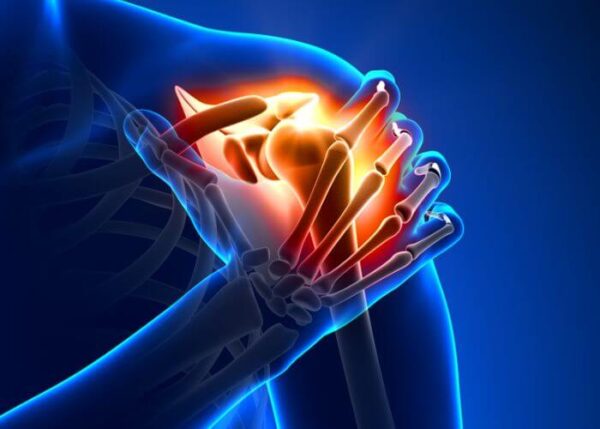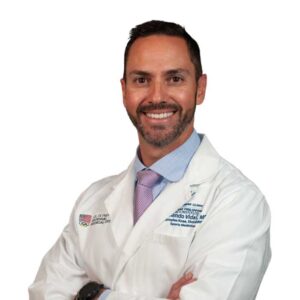What is shoulder instability in children?
The upper arm bone (humerus) sits in a shallow socket in the main part of the shoulder joint called the glenoid. The shoulder capsule and ligaments hold the bones of the shoulder securely in place. An injury to the ligaments or shoulder capsule can cause the shoulder to feel loose, allowing the humerus to slide out of the glenoid socket. This is called shoulder subluxation, or dislocation. Recurring shoulder dislocations can cause shoulder instability and the shoulder can continues to dislocate. Pediatric shoulder specialist, Dr. Armando Vidal has extensive experience in treating young patients with shoulder instability. Patients in Vail, Aspen and the surrounding Denver, Colorado communities trust him to help their children who have recurrent dislocations and shoulder instability.

What causes shoulder instability in children and teens?
Some children and teens have naturally loose ligaments which can put them at risk for shoulder instability. It can also be the result of performing regular shoulder movements that stretch the joint and shoulder capsule. Kids who are more likely to experience shoulder instability are those who participate in:
- Gymnastics
- Pitching sports
- Volleyball players
- Swimmers
- Tennis and other racket sports
Other causes of shoulder instability in children and teens could include a trauma, injury or a previous shoulder dislocation.
What are symptoms of shoulder instability in children, youth or teens?
Children with shoulder instability often have symptoms of:
- Popping, grinding or crunching sound when moving the shoulder
- The feeling of the shoulder giving way or popping out of joint
- Chronic pain, especially when reaching or lifting overhead
- Limited range of motion
- Numbness and tingling in the arm
- Shoulder tenderness when palpated
- Decreased sports performance
- Weakness in the shoulder
How is shoulder instability diagnosed?
Dr. Vidal will obtain a patient history and will examine the shoulder, putting it through several tests and motions to determine the amount of instability. If he suspects bone involvement, x-rays may be ordered. An MRI scan may also be requested so he can see the soft tissues, possible damage and to determine the best treatment plan for the patient.
What is the treatment for shoulder instability?
In younger patients and patients with atraumatic instability, Dr. Vidal prefers a conservative treatment approach. He may advise the following:
- Rest
- Anti-inflammatory medication
- Wearing a sling to immobilize the joint – especially if there has been a dislocation.
- Physical therapy to strengthen the surrounding muscles and stabilize the joint
- Activity modification
Surgical Treatment:
Surgery is usually reserved for traumatic cases of shoulder instability – typically with a labral tear – and recurrent cases. The goal of surgery is to stabilize the joint by tightening the ligaments of the shoulder and repairing any labral damage. Surgical treatment can usually be done arthroscopically, using a small camera inserted into the shoulder and small, specialized instruments. Arthroscopic shoulder stabilization usually has fewer complications and a shorter recovery time than an open, conventional surgery.
How soon can my child return to sporting activities?
For patients in Vail, Aspen and the surrounding Denver, Colorado communities, Dr. Vidal’s goal is to return the patient to sports as quickly and safely as possible. It is important however, to not return to sports or activities too soon, or play with pain because the injury may worsen. Each child recovers from injury at a different rate and Dr. Vidal will work with you to determine when the child can safely resume athletic activities.
Pediatric Shoulder Instability Specialist
Is your child an athlete experiencing shoulder pain, popping, decreased range of motion, or decreased sporting ability? If so, your child may be experiencing shoulder instability. Depending on the severity of the injury and your child’s age, there are a number of ways to treat this damage. Pediatric shoulder specialist, Doctor Armando Vidal provides diagnosis as well as treatment for children in Vail, Aspen, and the surrounding Denver, Colorado communities who are experiencing shoulder instability. Contact Dr. Vidal’s team today!

Locations
180 S Frontage Rd W
Vail, CO 81657
226 Lusher Court
Ste 101
Frisco, CO 80443
322 Beard Creek Road
Edwards, CO 81632


